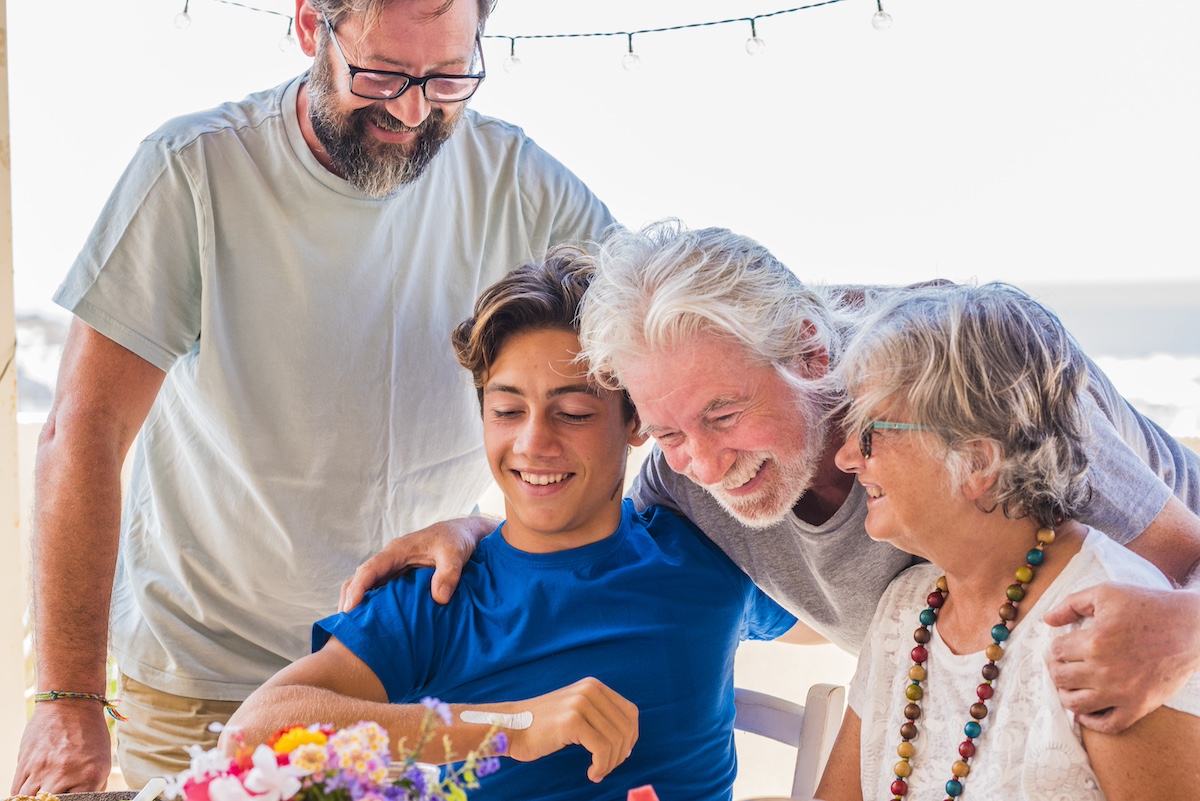Celebrating Holidays with Loved Ones in Hospice Care
The holiday season is supposed to be a time of joy and hope for the year to come.
But for many people, it’s also a painful time. That’s especially true if a loved one has a terminal illness. Cheerful celebrations may intensify feelings of anticipatory grief, as you worry that future holidays may never be the same.
Please rest assured, there is no one correct way to celebrate the holidays, especially when you or a loved one has received a terminal diagnosis. There are also many things you can do to make this a special and comforting time for patients and family members alike.
For Patients
Holidays bring physical and emotional challenges for people as they near the end of life.
Decorating, caroling, shopping and other familiar activities may trigger sadness for those who realize this may be their last Christmas. Patients may struggle between wanting to participate but not always having the energy to do so. People who once enjoyed traveling or hosting parties may grieve if they are no longer able to do those things.
- Plan ahead if possible.
Tell family members where you’d like to spend the holiday. Schedule activities for days and times when you’re likely to feel up to it. - It’s okay to set boundaries.
If you receive an invitation but just don’t have the strength to go, the host will understand if you decline. - Don’t be shy about asking for help.
You may no longer be able to cook a holiday feast on your own. However, you may be able to participate in some smaller ways if other family members join you in the kitchen.
For Caregivers & Loved Ones
Families often feel pressure to make their loved one’s last holiday a perfect one. But it’s often simple things like just spending time together that can be the greatest source of joy.
- Involve your loved one in the holiday.
Don’t assume that they no longer want to participate just because they can’t do everything they used to do. If they feel up to it, invite them to help decorate Christmas cookies or hang ornaments. Let them know it’s okay to take a break if they feel tired. - Be flexible.
It’s okay to cancel plans if your loved one doesn’t feel well. Have backup plans and keep emergency contact numbers on hand in case you need them. - Encourage honesty.
If this is likely to be your loved one’s last Christmas, it’s okay to say so openly. Not everyone can put on a “brave face” at all times. If your loved one or a family member has moments of sadness, it’s okay to talk about how they feel or spend some time alone if needed. - Keep your loved one’s care needs in mind.
If they need help with daily activities like feeding or getting dressed, consider that when planning activities. Offer friendly reminders to take their medication so they don’t forget amidst the holiday excitement. - Include some quiet activities.
Excessive noise and activity can be distressing for those who are nearing the end of their lives. Offer a listening ear if they need to speak, or just sit quietly if they don’t have anything to say. Encourage visitors to come separately, on different days, and not all at once, to avoid overstimulation. - Include old memories.
This final holiday may be a great time for sharing stories, photos and other traditions you’ll treasure in the years to come. Reminiscing about loved ones who have already passed away reassures the patient that you will still remember them after they are gone. - Have important conversations.
A family gathering offers a good chance to have difficult but important discussions on end-of-life matters, such as care preferences and funeral arrangements. - Help children cope.
Kids may be excited about what Santa will bring, but they may also be upset if a beloved grandparent can no longer play catch or do puzzles with them. Encourage children to express any emotions they are feeling, and let them spend time with their loved one when appropriate. - Stay hopeful.
If needed, seek help from a faith leader, counselor or hospice worker with experience in assisting families in your circumstances.
If you’d like to speak with someone about making this a special holiday for your loved one, please reach out to us at Crown Hospice or call 361-575-5900. We can also answer any questions you have about hospice or palliative care needs.




